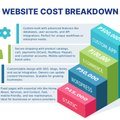If you run a business in the Philippines, you may be wondering if you really need a website. Many business owners use only Facebook pages, so this is a common question. However, a website is more than just a simple online brochure—it's available all day, every day, even while you're asleep. In this guide, we'll explain why having a website is important, which types of businesses benefit the most from them, and what could happen if you don't have one.
Q: Do I need a website in the Philippines? A: Yes. Having a website helps your business reach more customers, build credibility, and compete online.
Table of Contents
- Why Having a Website Matters in the Philippines
- What Types of Businesses Benefit the Most from Having a Website
- Other Industries That Can Also Benefit
- What Happens If a Business Does Not Have a Website?
- How to Get Started with a Business Website in the Philippines
- Is It a Must to Have a Website?
Why Having a Website Matters in the Philippines
Reach More Customers Online
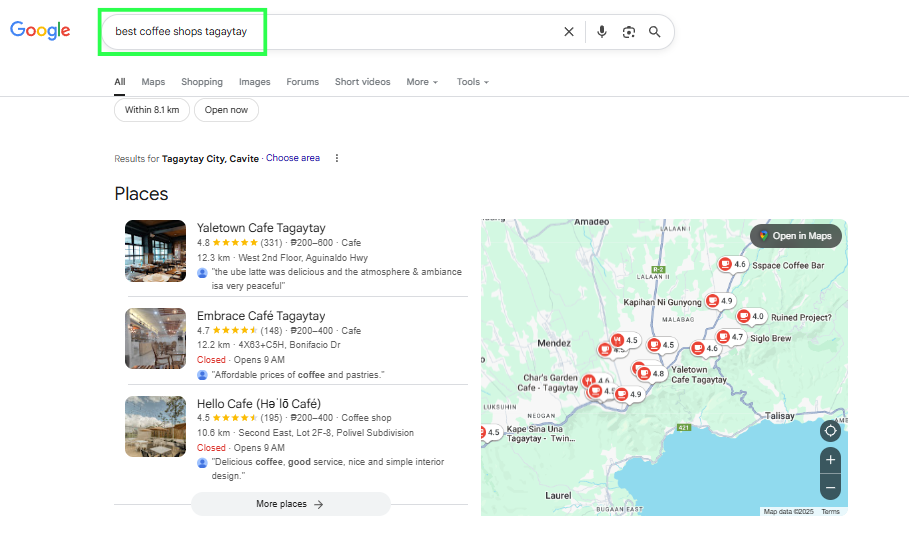
A website can help more people discover your business. For example, if you run a dental clinic, a construction business, or even a coffee shop, without a website, only people who already know you can find you. But with a website, anyone searching for a ‘dentist in Cavite,’ ‘contractor near me,’ or ‘best coffee shops in Tagaytay’ can easily find you online.
Unlike social media platforms, a website is always available, day or night. It doesn't rely on platform rules or algorithms. When you use Local SEO, your website can show up when customers nearby look for the services you provide. This means more people might visit your store, contact you, and help your business grow.
Having your own website means you get to decide what information is shared, how your services are presented, and how to encourage visitors to take action. You can't do this on other platforms. While social media platforms are great for engagement and reaching your existing followers, they don't give you the same control over your brand's presentation and customer journey that a dedicated website provides.
Your website also serves as the foundation for effective search engine optimization SEO, which helps your business appear higher in search engine results. This visibility is crucial for attracting new customers who are actively searching for the products or services you offer. The better your SEO, the more likely potential customers will find you before they find your competitors.
Improve Communication and Engagement
A website lets you share detailed information about your business, like your contact details, location, services, prices, and what makes you unique. It helps you save time because many common questions can be answered directly on your site.
This is convenient for both you and your customers. Instead of answering the same questions repeatedly via messages or calls, customers can find what they need on your website. This leaves you more time to handle complex questions and manage your business. When you have a comprehensive website, you don't have to worry about missing important inquiries during off-hours or when you're busy with other customers.
You can also offer online booking and payment options, making it easier for customers to interact with you. Whether they're scheduling appointments or placing orders, these features on your website simplify the process and enhance the customer experience. This level of convenience in customer service can set you apart from competitors who only rely on manual booking systems.
Modern websites can integrate chatbots and contact forms that automatically organize customer inquiries, making your customer service more efficient. This means you can respond to potential clients faster and more professionally, which often translates to higher conversion rates and more satisfied customers.
If you want to learn more, check out our full article on the advantages of having a business website in the Philippines.
Build Trust and Credibility
A professional website can make your business look more trustworthy. It gives you a space to present your services and products clearly. A well-designed website shows that you're a legitimate and established business. Good web design isn't just about looking pretty—it's about creating an experience that makes visitors feel confident in choosing your business.
You can also use your website to gather and showcase customer testimonials, which helps build trust. Unlike social media reviews that can get lost in endless feeds, reviews on your website are easy for potential customers to find. A dedicated testimonials page or section gives you control over how you present social proof of your quality and reliability.
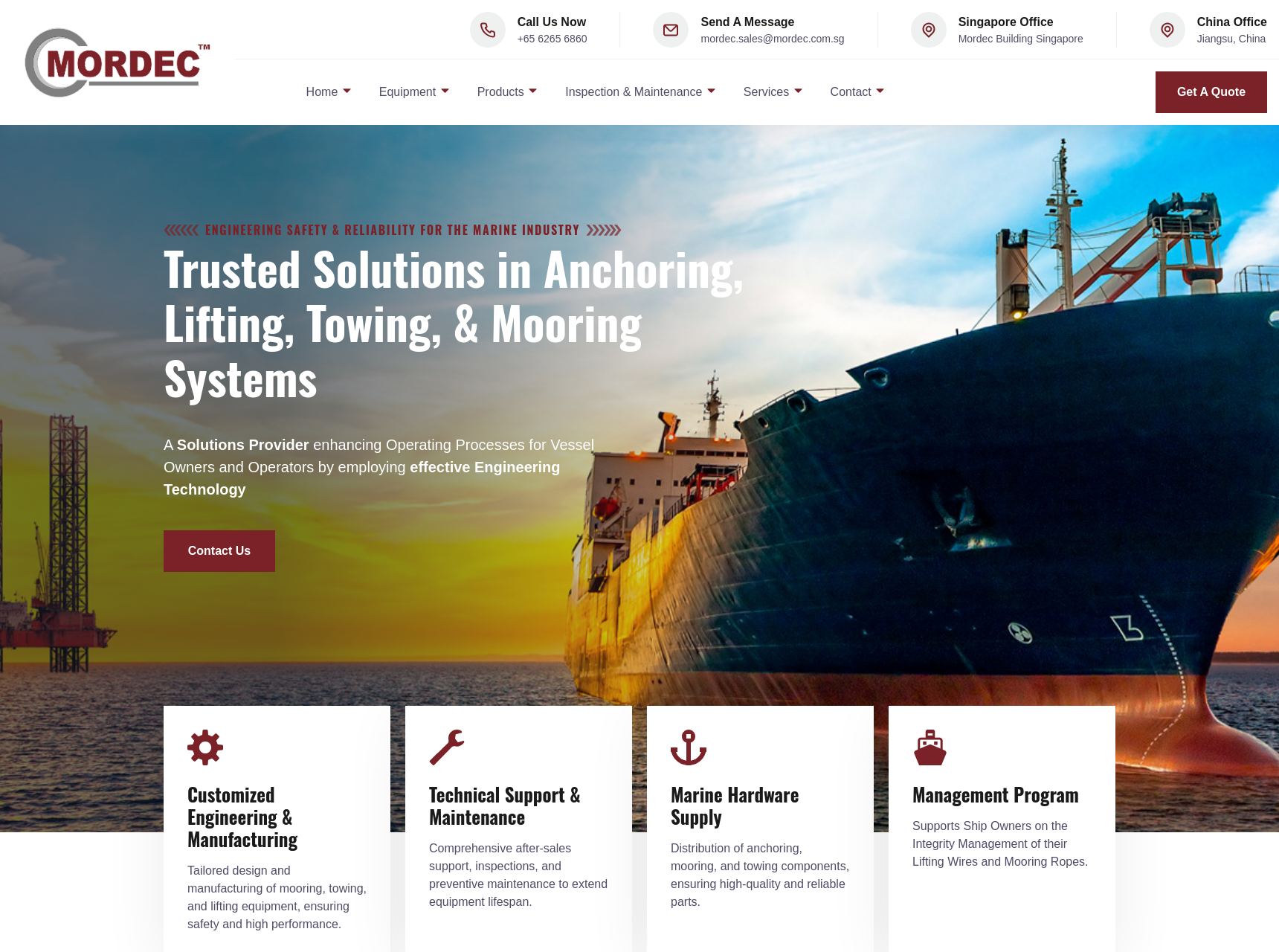
Your website acts as a portfolio where you can display your work, certifications, awards, and company history. This thorough representation builds confidence in potential customers who are comparing you to others. When people are making important purchasing decisions, they want to see evidence that you're experienced and qualified—your website is the perfect place to showcase all of this.
Increase Brand Awareness
A website allows you to maintain a consistent brand message across all your marketing strategies. While social media can bring great results, a website boosts your credibility, helps with SEO, and gives you full control over your online presence.
Starting a blog can help attract visitors too. You can create interesting content or publish helpful blogs to engage readers and draw in potential customers. By providing valuable information, you position yourself as an expert in your field. Content marketing through blogging is one of the most effective ways to improve your search engine rankings and establish authority in your industry.
Your website serves as the main hub for all your marketing efforts. Whether customers find you through social media, word-of-mouth, or ads, they can always visit your website for the latest information about your business. This centralized approach to your digital presence ensures that all your marketing strategies work together cohesively, rather than existing in separate silos.
Compete in the Digital Marketplace
In today's world, many customers expect businesses to have an online presence. Without a website, many customers might think you don't exist. This expectation has increased, especially after the pandemic highlighted the need for online visibility.
For effective SEO and marketing, you can't run ads or gain traffic on Google without a website. Your website is the foundation for all your digital marketing efforts, from Google Ads to social media campaigns. Without it, you risk being unseen by a large number of potential customers who rely on search engine results to find the services they need.
Small business owners often underestimate how much business they're losing by not appearing in search engine results. When someone searches for your type of business in your area, you want to be visible. Your competitors who have websites are capturing those customers while you're missing out on valuable opportunities.
What Types of Businesses Benefit the Most from Having a Website
![]()
Food & Hospitality
Restaurants, cafés, and catering services can attract more customers by displaying menus, deals, and customer reviews online. These businesses are especially helped because people usually want to see menus and prices before they go out. Great photos of your food can make potential customers hungry and excited to visit.
You can even add features like online ordering, reservations, and delivery options right on your website, making it easier for customers to buy from you. During busy times or events, having online ordering can cut down on phone calls and boost sales. Many website builders now offer templates specifically designed for restaurants with built-in ordering systems, making it easier than ever to get started.
Retail & Online Commerce
Local shops and e-commerce businesses can show off their products, answer questions, and compete with larger platforms like Lazada or Shopee. While you might not reach as many people as these big platforms, you can provide personalized service and build strong relationships with your customers.
A website lets you present your products, share details, and even take orders directly. For brick-and-mortar stores, it works like an online catalog that customers can explore before they come to your store, making their visit quicker and easier. Having your own e-commerce website also means you don't have to worry about marketplace fees eating into your profits or losing customers to competitors featured on the same platform.
Health, Beauty & Wellness
Salons, spas, gyms, dentists, clinics, and tattoo shops benefit from websites that promote their services, prices, and booking options. These types of businesses rely on trust, and a professional website helps establish that.
You can display before-and-after photos, details about services, and information about your staff. Online appointment booking is especially helpful in these industries, as it cuts down on back-and-forth phone calls and lets customers schedule appointments at their convenience. Quality web design for these businesses should emphasize cleanliness, professionalism, and ease of navigation to match the customer experience you provide in person.
Real Estate & Property Services
Real estate agents, architecture firms, and contractors build trust when clients can easily view listings, portfolios, or completed projects online. Buying property is often a big investment, so potential clients want to do their research before reaching out.
A website allows you to showcase your best work with photo galleries, project summaries, and client reviews. For real estate agents, having property listings with detailed pictures and descriptions can attract serious buyers and save time by filtering out non-serious inquiries. Virtual tours and interactive floor plans are becoming standard expectations, and you need a website to deliver these features effectively.
Professional & Service-Based Businesses
Lawyers, accountants, agencies, consultants, and finance services gain credibility with professional websites where clients can learn about their services and reach out directly. These businesses often handle complex and important transactions where trust is crucial.
A professional website can explain your services clearly, demonstrate your expertise through case studies or blog posts, and offer simple ways for potential clients to contact you. It's also a great space for sharing industry knowledge and establishing yourself as an expert in your field. For professional services, appearing in search engine results when someone needs your expertise can be the difference between a thriving practice and struggling to find clients.
Other Industries That Can Also Benefit
Education and Childcare: Schools, daycare centers, and training programs can share their lessons, show off their facilities, and communicate better with parents and students. Parents researching schools for their children often start their search online, and having a comprehensive website with information about your curriculum, staff, and facilities can give you a significant advantage.
Automotive Services: Mechanics and repair shops can display their services, offer maintenance tips, and let customers schedule appointments online. These businesses can benefit greatly from educational content that helps build trust with customers who may not know much about car maintenance.
Pet Services: Grooming, boarding, and training services can show their facilities, share their prices, and make it easy for pet owners to book services. Pet owners want to see where their beloved animals will be cared for, and high-quality photos and detailed information on your website can ease their concerns.
Non-Profits & Community Organizations: Advocacy groups and charities can share their mission, highlight their accomplishments, and make it easier for people to donate or volunteer. A website gives these organizations legitimacy and makes it simple for supporters to get involved or contribute financially.
What Happens If a Business Does Not Have a Website?
Relying Only on Facebook or Social Media
Being dependent on a third party means businesses are at the mercy of Facebook policies and algorithms, which can change at any time. What if your account gets hacked or banned for no reason? You have no control over a Facebook business page. You could lose everything if you accidentally "violate" their terms and conditions.
Facebook's reach is only among its users, and not everyone likes using it. While it's popular in the Philippines, some people research businesses on Google instead of scrolling through social media. The younger generation might prefer Instagram or TikTok, while professionals might search on LinkedIn or Google—you can't predict where your next customer will look for you.
Also, a Facebook page doesn't have the trustworthiness that a well-made website offers. Having a good website can greatly benefit your business and show that you are serious about your professional image. Social media platforms are excellent tools for engagement and marketing, but they should complement your website, not replace it entirely.
Customers Can't Find You on Google
One of the biggest problems with only using Facebook is that it won't show up on search engines like Google. Most people, but not everyone, use Facebook and Instagram. However, everyone has access to search engines like Google, Yahoo, or Bing on their phones.
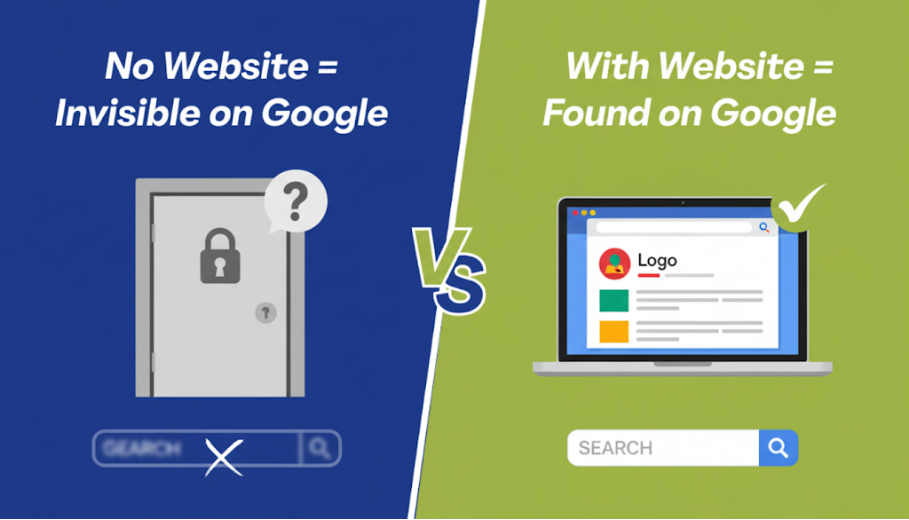
Many customers prefer using Google to find businesses, and if you don't have a website, it can make your business seem less professional. If potential customers search for services in your area and see your competitors listed but not you, you're at a disadvantage. Search engine optimization SEO is impossible without a website—you simply can't rank in search engine results if you don't exist on the web outside of social media platforms.
Competitors Already Have Websites
In competitive industries, having a website sets you apart. Businesses with websites often look better than those that just have a Facebook page. When customers are comparing choices, they usually prefer businesses that seem more established and professional.
Many customers expect businesses to have a website; if you don't, they might choose a competitor that does. People associate having a website with reliability and professionalism, which are important when making buying decisions. Small business owners who invest in a professional online presence are sending a message that they're serious about their business and committed to providing quality service.
You're Losing Inquiries or Sales Opportunities
Not having a website can mean losing inquiries and sales. A website makes it easier for customers to book services and find important information like menus, hours, and prices, which helps them make decisions.
One client told me that after starting their website, they began to receive inquiries from businesses and job seekers—opportunities they would have missed without a website. A professional-looking site builds customer trust and can lead to more sales. These weren't just regular customers—they were high-value business clients who specifically searched online and expected to find a professional website before making contact.
How to Get Started with a Business Website in the Philippines
Creating a website doesn't have to be complicated. The key is to understand the basics, choose the right setup for your needs, and keep your site user-friendly. Here are some practical steps for business owners in the Philippines:
Choosing Between Lump Sum vs. Subscription Plans
One of the first choices when starting a website is how to pay for it. A lump sum means you pay the full amount upfront, which gives you full ownership and the freedom to manage everything yourself. In contrast, a subscription plan allows you to pay monthly, which covers your domain, hosting, and maintenance. This option handles all the technical details for you, letting you focus on running your business.
Many small business owners prefer subscription plans because they don't have to worry about technical issues, security updates, or hosting problems. Everything is managed for you, which is especially valuable if you're not tech-savvy or don't have time to learn website management.
Domain, Hosting, and Maintenance Basics
Think of your domain as your business's online address, while hosting is the space where your website files are stored. Both are necessary for people to access your site. Regular maintenance keeps your site safe, up-to-date, and running smoothly. For a hassle-free experience, our services can take care of your domain, hosting, and ongoing support.
Choosing Between DIY Website Builders and Professional Services
Website builders like Wix, Squarespace, or WordPress.com make it possible for anyone to create a basic website. These platforms are affordable and user-friendly, but they have limitations. If you want custom features, better search engine optimization SEO, or a truly professional design, working with a web design professional can give you better results.
Professional web design services understand how to create websites that not only look good but also convert visitors into customers. They know how to structure your content for better search engine rankings, optimize loading speeds, and create user experiences that guide visitors toward taking action—whether that's making a purchase, booking an appointment, or contacting you for more information.
Keeping It Simple and Mobile-Friendly
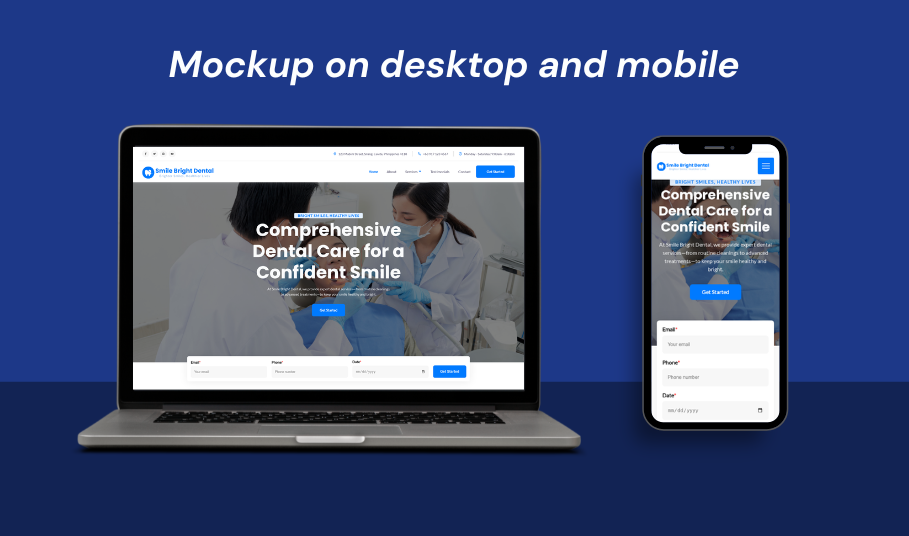
Your website doesn't need to be complicated to be effective. A simple design, fast loading time, and easy navigation can make a big impact. Since many Filipinos use smartphones to browse, it's crucial that your site works well on mobile devices to not miss out on potential customers. Simple, responsive websites for small businesses often work better than overly complicated ones. We specialize in creating straightforward, responsive websites for small businesses — you can check out examples in our portfolio.
Mobile-friendliness isn't just a nice feature—it's essential. Google prioritizes mobile-friendly websites in its search engine results, which means a website that doesn't work well on phones will rank lower than one that does. This directly affects how many potential customers can find you online.
Is It a Must to Have a Website?
You need a website. Yes. Period. Even a simple website with just the basics can greatly benefit your business. At the very least, it should include a contact form and a phone number that people can click on.
In today's world, having a website isn't just a plus—it's a must.
Customers want to find you online, and if you're missing from search results, you could lose important business opportunities. Whether you're a small local business or a growing company, a website acts as your online store, helping to attract and turn potential customers into loyal clients, 24/7.
While social media platforms are valuable tools for connecting with your audience, they should be part of your marketing strategies—not your entire digital presence. A website gives you control, credibility, and visibility that social media alone cannot provide. When you combine a professional website with smart search engine optimization SEO and active social media engagement, you create a powerful online presence that helps your business grow and succeed in the competitive Philippine market.


